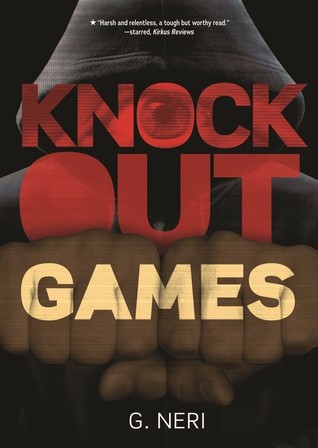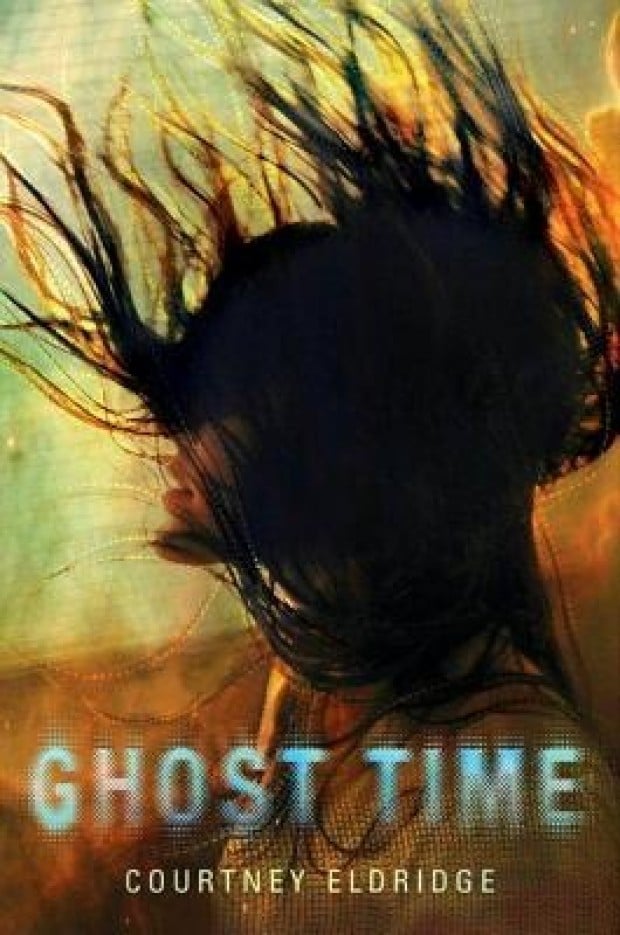Pat Schmatz
Series: N/A
Genre: Young Adult, Science Fiction, LGBT+
Release Date: September 8th, 2015
Publisher: Candlewick Press
Rating: 3.75 out of 5 stars
Goodreads | Amazon | Book Depository
Yes! I finally got to it! This was one of the first books I picked up at BEA, so thank you Candlewick Press for giving me this ARC.
I often write about books with diverse subject matter and characters, and often I will crack down on a books that either don't have it or don't do it well. Lizard Radio is one of the few books with diverse subject matter as a key piece of its central themes.
Kivali, the main character, lives in a "dystopian" world where teens are taken to a camp to Conform them, forcing a rigid, orderly set of behaviors so that their adulthoods can be predictable and maintain a tight society. If they do not conform, they are made outcasts. I say "dystopian" because while Schmatz's camp system has many elements of the dystopias we're used to, the trials that Kivali is put through are the ones that we face in our society. What I love about this work is that it is not very far off from our reality: the camp and conforming system works on precisely the same binary ideology and employs many of the same mechanisms as our modern socialization systems. In other words, they're using the same "leader/follower," "boy, girl," "evil, good," strict binaries and enforcing them in a way that we're used to but often don't notice consciously: boys and girls being separated physically, for example, and being socialized in extremely different ways. The plot itself is very focused on answering questions regarding these binaries and other things about coming of age and what it means to be a member of society. Therefore, it's pretty average, with few unexpected twists. There is the addition of the Lizard Radio . . . and you won't understand it for most of the book, but it's cool, I promise.
One of the weaknesses in this book is the characters. Many of the secondary characters feel precisely like secondary characters. While a couple have their own backstories, I can feel them being purposefully sent to the back of the stage, simply because the book is short and its story focuses heavily on Kivali's coming of age.
Despite the other characters, I flat out love Kivali. She's snarky, weird, and living breathing proof that society is messed up. She faces all of the binaries I talked about before head on, and challenges them. She's pretty ruthless, but she has a soft side. Because it's a coming of age book, her character does mature over time. She later realizes everything works on a spectrum: there is no absolute "good" or "evil," just what a society believes is good or evil, and there is no "girl" or "boy," only behaviors society characterizes as feminine and masculine. Therefore, in both instances, there are a multitude of areas in between. It was really wonderful going through a coming of age story that focuses on the gray areas: some choices are morally gray in the book, and I like that. It's fresh. At first, I thought Kivali's bender themes (bender being a term in the book for people not strictly in a gender role) were going to overrule the rest of the plot, but instead, they're woven in tightly to the rest of the action in meaningful ways.
Schmatz's writing is smart. When Kivali is disinterested, the scene is presented with weak and off-hand descriptors (l-shaped building, round-roofed structure). When Kivali is afraid, the scene is menacing, when she's nervous or breaking down, the scene mirrors this with the appropriate descriptors. Too often, this is something missing from a novel. Throughout this, there is a constant lyricism to Schmatz's writing that just kept me drawn in.
The weakest part of the book, for me, is the slang/jargon/etc. While fairly intelligent, we're introduced to it from Kivali's point of view, while she's busy battling questions about why Sheila has left her at the mercy of what at first seems like a summer camp. Even when we get direct descriptions, they're spare: the Mealio is this building, the Pieville is down that road, etc. Though the writing itself is spot on, the beginning makes the jargon seem more confusing than interesting.. It took me about a third of the book to get a good feel for the jargon. Once I did, everything made a lot more sense.
Overall, I would recommend Lizard Radio. It's short and very sweet.
- Marlon
What was your worst summer camp experience?
Let us know in the comments!
Let us know in the comments!





